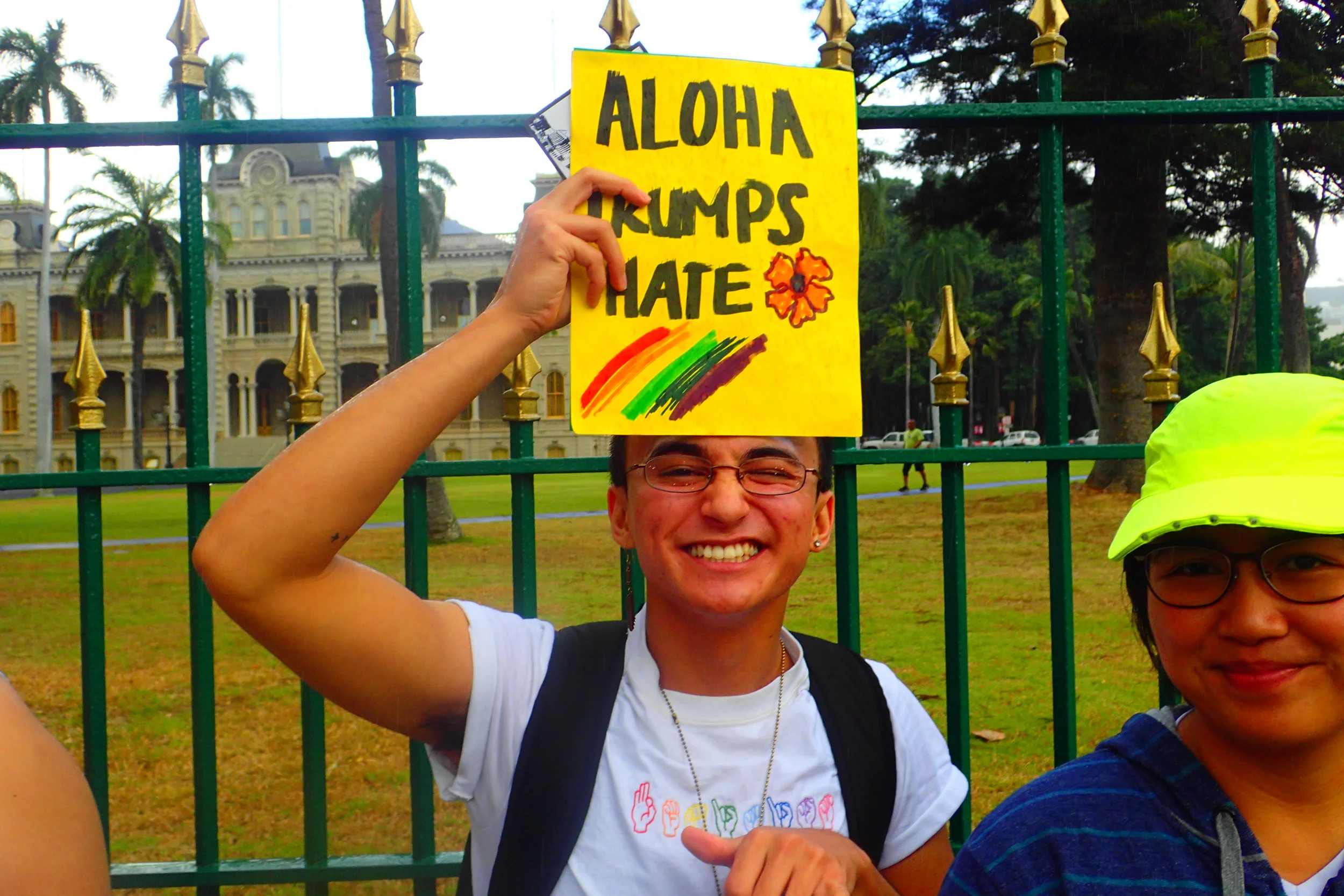When we travel the world, our own beliefs and comfort zones are often challenged by the cultural differences we encounter. I was reminded to keep my own beliefs in check one morning in Bali when I stumbled upon a cockfight outside of Ubud.
After my attempts to engage with Macaque monkeys in an ethical manner the day before, I now found myself standing as an observer to a bloody, testosterone-charged death match between beautiful roosters.
In my opinion, it's an incredibly inhumane tradition—one I felt uncomfortable taking part in as a reluctant voyeur. At the same time, it was just that: A tradition.
The cockfight is one of those travel moments that reminded me about how much our culture shapes our beliefs and behaviors. You don't have to agree with those of others, but you can try to understand them.
"It's a cockfight!"
I came across the cock fight as I was cycling with Shelly, an English woman I had met while doing yoga in Ubud. We had set out early, peddling uphill to make it to the lauded Tirta Empul water temple by the afternoon.
"It's a cockfight!" Shelly called out as she hopped off her bicycle. We approached a gated area where a crowd of Balinese men were gathered. I could see a bird had just been slaughtered.
As a rule, every cock fight ends in death. To move things along, spurs called tadji are attached to one leg of each rooster. The fight usually ends when this 4- to 5-inch sword cuts deep into the loser.
Cockfights do not always end in one bird killing the other, however. Whether dead at the end of the fight or not, the loser becomes the main course for dinner—usually eaten by the winning cock's owner and his family.
After the losing bird was scooped up and taken away, three men began handling a few new cocks introduced into the ring. Cock handlers pass the cocks back and forth to test their weight and condition to ensure a fair fight.
The roosters have a natural, aggressive tendency toward other roosters, so it's only a matter of determining which two are an equal match for each other. This includes picking at the feathers on their heads while facing them to each other to see which pair wants to fight.
Understanding Tradition
As they were preparing a pair of cocks for the next fight, I stood there dealing with my reluctant feelings about the whole engagement. Being an observer did not feel right.
Not only are cock fights illegal in Bali (aside for a few particular, religious occasions), I could not help but feel guilty for looking on. I felt as though my presence subliminally encouraged the behavior, as if this was something acceptable and "worth" watching.
At the same time, I felt compelled to stay. I wanted to put my own belief system aside and try to understand, anthropologically, what was going on from the perspective of the men.
Balinese Hindus are deeply spiritual people. Their culture and history are drenched in tradition and myth. They offer incense and rice to the gods multiple times a day, every day. They perform beautiful dances and ceremonies.
They also engage in sacrifice or tabuh rah, "spilling blood," in the form of the cockfight. The purpose of tabuh rah is to ward off evil demons, often depicted in animal form in the sculptures seen around Bali.
Understanding Wealth
The cockfight is not only about ritual and tradition, however. For the Balinese, a winning rooster can be the difference between being rich or poor. Thus, the gambling element is one of the most obvious attractions.
Before cockfights became illegal in Balinese society, they were taxed and produced a fairly significant source of revenue for the villages. Today, with no government involvement other than the occasional police raid, the money flows between the cock owners and the audience.
Betting takes place on two levels. Bets or toh occur between the owners with a group of backers to increase the pot and also between the individual men in the crowd who place their bets by shouting out from the audience.
It's the equivalent of a horse race. A lowly farmer who raises a prize-fighting cock can quickly become rich from one or two fights.
Understanding...Cocks
Aside from the cultural and financial, however, it was clear to me that these men were in the fight out of pride for their sabung ("cocks"). They held them up to me and Shelly, proudly. They squatted with them between their legs, stroking them gently. The cocks were clearly cared for with the utmost respect and admiration.
At this point in the post, you're either laughing hysterically or simply wondering about the word cock. Indeed, the word has dual meaning in Balinese the same as it does in English. The double entendre of sabung is understood, joked about, and inevitably a part of the psychology behind Balinese men's participation in the sport.
Sabung is used, quite literally, as a metaphor for "champion," "tough guy," "warrior," and other, similarly masculine names.
Consider the White man and his car in understanding the social significance of the sabung in the cockfight: Men buy faster, more expensive cars, polish them and care for them obsessively, show them off to each other and even race them against each other.
Balinese men try to raise prize-fighting cocks, hand-feed, clean, and stroke them daily, then set them against each other to beat out all the other cocks in a fight.
White men racing their cars is to Balinese men fighting their cocks. No matter what you think of these displays—perhaps this metaphor helps you understand the significance of the cock in Bali.
On a different occasion, I saw a cock in a wicker cage in a traditional village in Eastern Bali. This prize-fighter had been painted neon pink and yellow. I asked why. "Because he a winner!" the village guide told me.
A bright-colored cock or a loud exhaust? Take your pick. Both are symbols of masculinity and, at least jokingly, the size of one's penis.
The fight
As the fight finally broke out between a chosen pair of cocks, a hush fell over the crowd. One cock dominated, the other submitted, and almost as soon as it started the fight was already over. Thankfully, there was not much blood and the beaten cock did not die in the fight on this occasion.
If you're interested in watching, I filmed a bit of the fight and put it together with the prep for the fight in the following short video. Just consider this disclaimer before you watch: Warning! Graphic violence between animals curated by human handlers!
[Note: YouTube took down my video due to the "graphic nature" of its content. Sorry! If you'd like to see the video, please feel free to contact me for a copy.]
It's hard to tell from the editing I did, but watching one full cock fight from start to finish took about 30 minutes time.
Even though the cocks were set loose on each other for only seconds, all of the prepping and betting added to the time. It all took much longer than I anticipated staying for such an event.
Purifying My Soul
By now, I had gotten my fill of cocks (ha, what a phrase when taken out of context!). I was ready to cycle on to the water temple. If witnessing a cockfight wasn't reason enough for wanting to cleanse my soul in its cool spring waters, the strenuous, uphill ride was about to make me want it even more!
We spent the next 2 hours powering up a constant incline to reach Tirta Empul. The temple is about 7.5 miles (12 km) North of Ubud and south of Mount Batur in the town of Tampaksiring. So we cycled uphill for nearly 8 miles. Ouch!
The path there was amazing despite the extreme challenge. Tegallalang has striking, bright green rice terraces on the side of the road, easily missed if zooming by in a car or on a motorbike.
Shelly and I eventually made it to Tirta Empul with the help of a very friendly Balinese man on a motorbike who led us in the right direction after a wrong turn.
Tirta Empul is built on a water source from the Pakerisan River and is considered holy water. The water is bathed in for ritualistic purification.
After the difficult bicycle ride in the heat of the afternoon, I was definitely up for an icy-cool dip.
I tied on my sarong and hopped in behind the line of visitors. All of the Balinese folks watched me and smiled and offered encouraging gestures as I went and dunked my head under one of the many spouts.
They seemed to enjoy that I was participating in their tradition.
I definitely felt better about being a part of this ritual. It was so refreshing and a welcomed departure from the cockfight!
What do you think about the cockfighting ritual in Bali? Would you have stopped to watch as a tourist or would you have kept on going?





